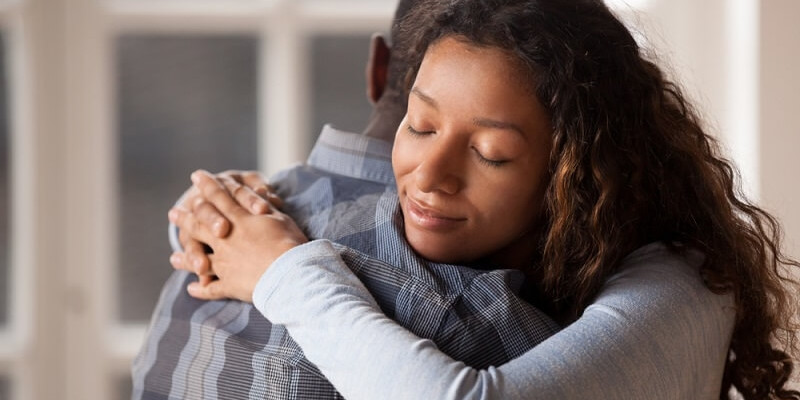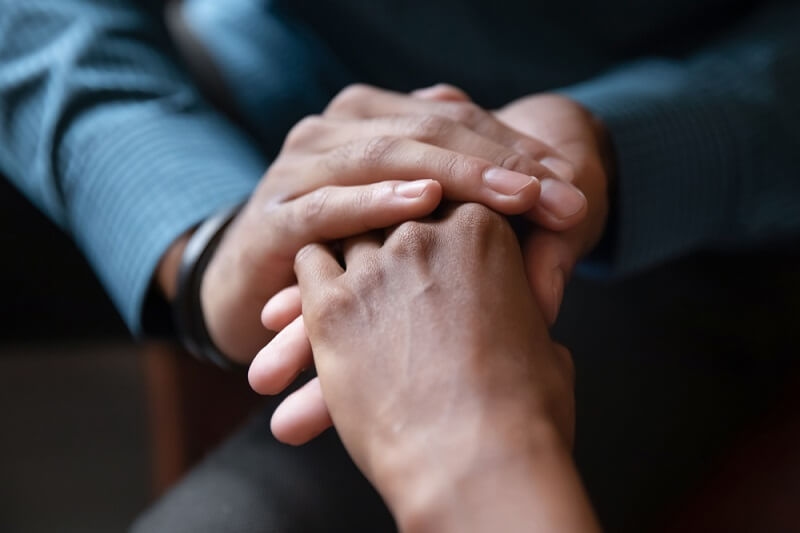Forgiveness in Relationships: Healing the Deepest Wounds

Forgiveness is a profound and essential aspect of human relationships. As we navigate the complexities of intimacy, conflicts, and misunderstandings are inevitable. However, it is through the act of forgiveness that we can find healing, strengthen emotional bonds, and cultivate healthier connections with our loved ones. In this blog post, we will explore the significance of forgiveness in relationships, its far-reaching benefits, the challenges it may present, and practical strategies to embrace forgiveness as a means to nurture, reconnect, and thrive together.
Understanding Forgiveness in Relationships

Forgiveness is a multifaceted and deeply transformative process that holds immense power in the realm of relationships. At its core, forgiveness involves letting go of resentment and negative emotions towards someone who has hurt or wronged us. It is not about condoning or forgetting the hurtful actions, but rather about freeing ourselves from the burden of anger and bitterness.
The Role of Empathy and Compassion
Forgiveness often starts with cultivating empathy and compassion for the person who has hurt us. By putting ourselves in their shoes and understanding their perspective, we can begin to humanize them rather than demonize their actions. This shift in perception can pave the way for empathy, compassion, and the potential for reconciliation.
Acknowledging the Pain
Forgiveness does not require us to deny or minimize the pain we have experienced. It is essential to acknowledge and process our emotions fully before we can embark on the journey of forgiveness. This acknowledgment is a crucial step in the healing process.
Embracing the Power of Choice
Forgiveness is a choice, and it may not always come easily. It requires a willingness to let go of grievances and work towards healing. Understanding that forgiveness is an act of empowerment rather than weakness can encourage us to embrace this transformative process.
Benefits of Forgiveness in Relationships

Forgiveness offers a multitude of benefits that can positively impact both individuals and the relationship as a whole. Let's explore some of the most significant advantages:
Healing Emotional Wounds
Unresolved conflicts and emotional wounds can create barriers between partners, leading to a breakdown in communication and emotional intimacy. Forgiveness serves as a powerful healing agent, allowing both individuals to release the pain, find closure, and move forward together.
Rebuilding Trust
Trust is the foundation of any healthy relationship. When trust is broken due to hurtful actions or betrayal, it can feel like an insurmountable obstacle. However, forgiveness is a vital step toward rebuilding that trust. It demonstrates a willingness to give the other person a second chance and opens the door for honest communication and potential reconciliation.
Enhancing Emotional Intimacy
Forgiveness fosters emotional intimacy by creating a safe space for vulnerability and open communication. When individuals feel safe to express their emotions and concerns, it leads to deeper emotional connections and a more profound sense of understanding between partners.
Reducing Resentment and Toxicity
Holding on to grudges and unresolved issues can lead to a buildup of resentment, bitterness, and toxicity in the relationship. Forgiveness is the antidote to these negative emotions, as it allows us to release them and cultivate positivity and love.
Promoting Personal Growth
Forgiveness is not just about healing the relationship; it is also a powerful catalyst for personal growth. It requires self-reflection, empathy, and understanding, enabling us to better understand ourselves and our partners. This process of self-discovery and growth contributes to healthier and more fulfilling relationships.
Challenges and Obstacles to Forgiveness
While forgiveness can be profoundly transformative, it is not always a straightforward path to take. Several challenges and obstacles may stand in the way of embracing forgiveness:
Fear of Vulnerability
Forgiving someone who has hurt us may require us to be vulnerable and open to potential hurt in the future. The fear of being hurt again can make forgiveness seem daunting and risky.
Holding Onto Resentment
Holding onto resentment can provide a false sense of control or protection. Letting go of resentment may feel like letting the other person off the hook or acknowledging their actions were not as hurtful as we perceived them to be.
Inability to Forgive Ourselves
Sometimes, the hardest person to forgive is ourselves. We may blame ourselves for our role in the conflict or for allowing the hurt to happen. Self-forgiveness is a vital aspect of the forgiveness process, but it can be challenging to achieve.
Miscommunication and Misunderstanding
In some cases, the hurtful actions may be a result of miscommunication or misunderstanding. Clarifying intentions and motives can be challenging, making it harder to reach a place of forgiveness.
Cultivating Forgiveness in Relationships

Cultivating forgiveness is a conscious and intentional process that requires effort and patience. Here are some practical strategies to embrace forgiveness in your relationships:
Communicate Openly and Honestly
Effective communication is crucial for forgiveness to flourish. Both partners should feel safe to express their feelings, concerns, and desires for forgiveness in a calm and non-confrontational manner. Active listening and validation of emotions are vital during these conversations.
Practice Empathy and Understanding
Developing empathy and understanding towards the person who has hurt us can be challenging, but it is essential for the forgiveness process. Reflect on their perspective, circumstances, and intentions to humanize them rather than demonize their actions.
Allow Time for Healing
Forgiveness is a process, and it may take time to reach a place of true forgiveness. Allow yourself and your partner the space and time needed for healing and emotional processing.
Set Boundaries and Expectations
While forgiveness is essential, it does not mean overlooking harmful behaviors. Set clear boundaries and expectations for the future to prevent repeated hurts. Communicate these boundaries and work together to establish a healthy and respectful relationship moving forward.
Seek Professional Support
If forgiveness seems particularly challenging or if the hurt runs deep, seeking the guidance of a couples' therapist or counselor can be beneficial. A trained professional can facilitate communication and provide tools to navigate the forgiveness process.
Conclusion
A powerful and transforming act, forgiveness has a tremendous impact on relationships. It may repair emotional damage, increase emotional connection, restore trust, and foster personal development. Accepting forgiveness, though, is not always simple because it has its share of difficulties and roadblocks. However, forgiveness may be developed with open conversation, empathy, self-reflection, and a readiness to let go of resentment, leading to stronger and more rewarding relationships with our loved ones. Accepting forgiveness is a path toward development, understanding, and the opportunity for a strong and enduring partnership. It is not simply about mending the relationship.
This content was created by AI





